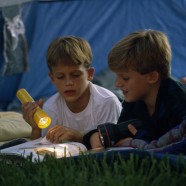
Florida residents are almost too familiar with blackouts and power outages. Between the excessive amount of lightning that strikes, tropical storms, hurricanes, and aging infrastructure, a power outage is to be expected on just about any day. The question isn’t when, it’s for how long. Outages of minutes or an hour or two are just annoying and inconvenient. It’s when the power outage lasts 12 hours or more that it begins to affect your quality of life. You’ll sorely miss your air conditioning during most of the year, and food in your refrigerator and freezer begins to go bad after half a day.
One way smart homeowners are getting around this problem is by installing a home standby generator. These backup power units pitch in when the regular power goes out. Deciding between the types of generators depends completely on your needs for power. This generator buying guide can help you to choose the right one for your home.
Generator Types
There are two basic types of generators, and each one has its pros and cons. The first is a portable generator. This the less expensive option of the two. The generator can stay hidden in a garage or shed until it’s needed. Portable generators usually run on gasoline, which can be difficult to get during an extended blackout, so supplies have to be stored in a safe place. You have to connect and start a portable generator yourself, and keep the fuel tank topped off while it’s operating.
Your other choice is to have a home standby generator installed. This is a permanent installation in your home, much like the HVAC system. A standby system is significantly more expensive than a portable model, but they can be much more powerful, creating more energy for your home use. Standby generators generally run on propane or natural gas, so fuel is easier to get, and they’ll turn on automatically when your power goes out.
Additional Features
The basic portable or standby generator will have a variety of features, all of greater or lesser use to you, depending on your lifestyle.
Portables
- Several models offer electric starting, but the battery for this can cost around $50
- Your portable generator may not be as portable as you think: some suppliers charge $150 for wheels
- Some portables run slightly under their rated wattage, which can cause appliances to run hotter
Standby
- The transfer switch, which controls the on and off switch, can cost upwards of $500
- The 250-gallon tank, while good for a week or two, costs hundreds of dollars to fill
- Stationary generators require installation by a licensed electrical contractor
How Big?
Generators are sold by wattage: each one will produce a maximum number of watts of electricity at a time. The one you need to buy depends on what you need to power. As a bare minimum, most people need to power their refrigerator and freezer, a few electric lights or fans, and possibly a window air conditioner. Depending on your needs or those of family members, you may need to run medical appliances, window air conditioners, central air conditioning, or computers.
Each item uses a defined number of electrical watts. Look in the paperwork or find averages online for everything you need to use during a power outage. For instance, a refrigerator uses around 600 watts, lights are 60 to 200, a ceiling fan 120, and a toaster oven uses over 1,200 watts. Add up all the wattage needed for your bare minimum usage, add 20 percent for contingency and investigate generators in that wattage range.
Safety First
Keeping the power on is important, but safety is crucial during a power outage. If you run a portable generator, always run it outside and away from the house. Never run it in enclosed spaces such as a shed or garage to prevent dangerous fumes from building up. No matter what kind of generator you decide to use, never operate more appliances than it’s rated to run. Extra demand on the generator can cause it to overheat, creating a fire hazard. You don’t have to suffer in the dark during a power outage, but you do have to be responsible when powering up your home.
If you need any help deciding what generator is best for your requirements, schedule a meeting with us for expert advice.

Recent Comments